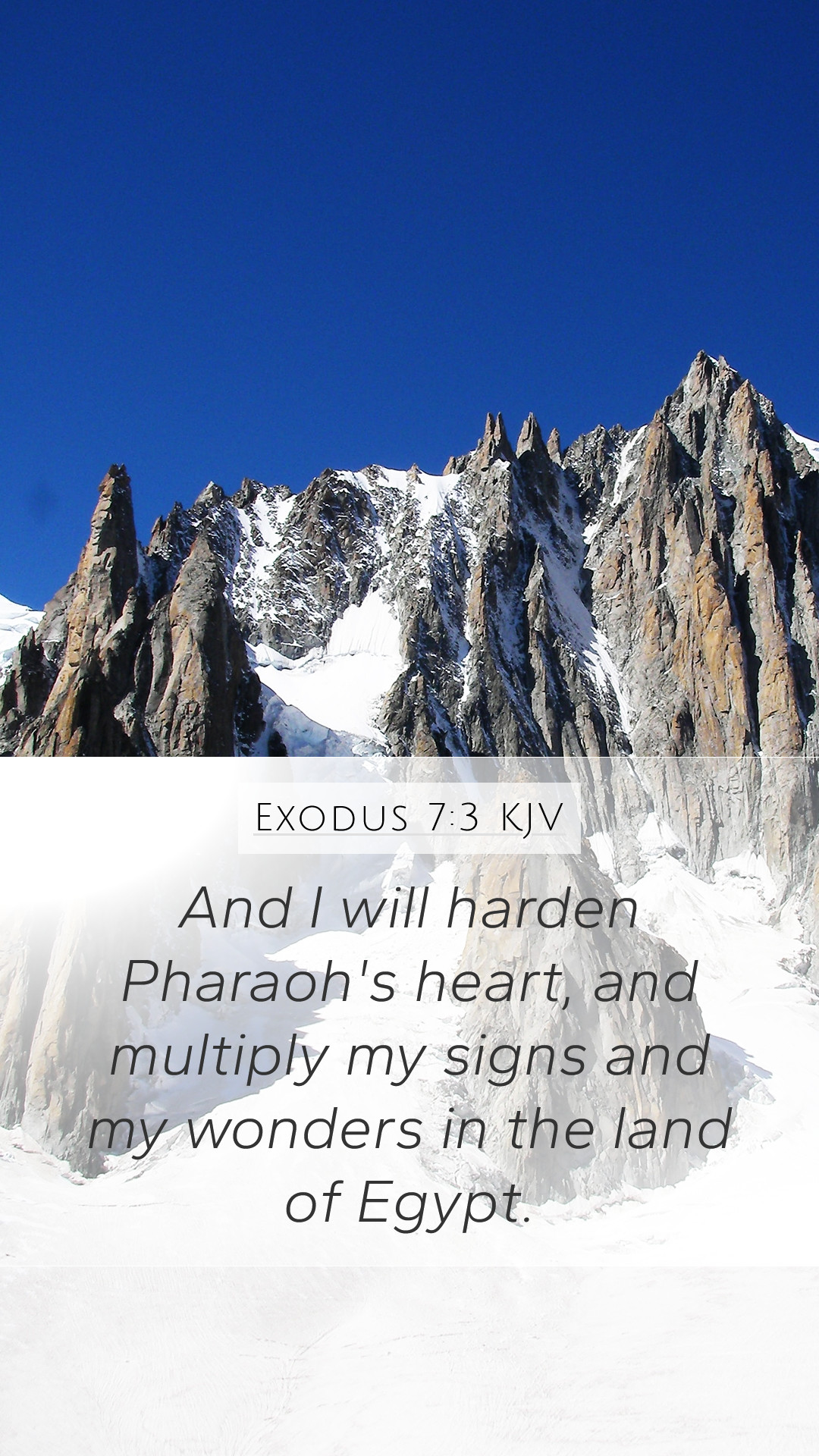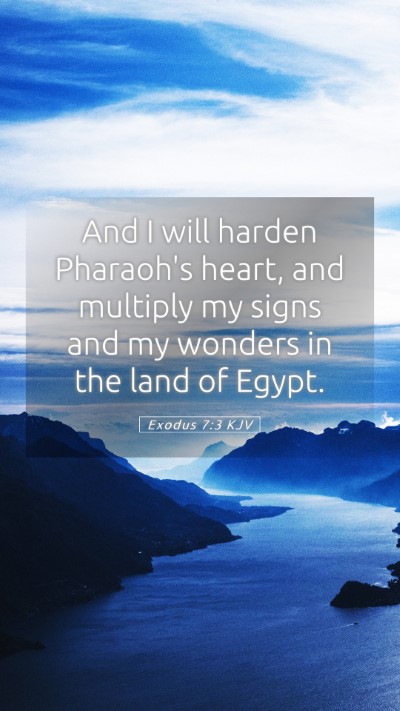Understanding Exodus 7:3 – A Comprehensive Bible Verse Commentary
Exodus 7:3 states, "And I will harden Pharaoh's heart, and multiply my signs and my wonders in the land of Egypt." This significant verse illustrates God's sovereign control over the events in Egypt, particularly concerning Pharaoh's obstinance against God’s command to let the Israelites go. In this commentary, we merge insights from notable scholars, including Matthew Henry, Albert Barnes, and Adam Clarke, to provide a detailed understanding of this verse.
General Interpretation
The verse signifies God's intention to display His power not just through plagues, but through the very hardening of Pharaoh’s heart. God's sovereignty is evident, as He actively participates in the events leading to the Exodus, demonstrating that His purposes will prevail despite human resistance.
Insights from Commentaries
-
Matthew Henry:
Henry emphasizes God’s judicial hardening of Pharaoh’s heart as a means to fulfill the divine plan. He notes that this act serves two purposes: it illustrates the extent of Pharaoh’s rebellion and showcases God's glory through the ensuing signs and wonders. Henry also states that when God hardens hearts, it is a result of the person's continual sin, leading them further into their own defiance—a grave warning for all.
-
Albert Barnes:
Barnes explains that Pharaoh’s heart becomes hardened due to a combination of God’s action and Pharaoh's own decisions. The verse indicates that God’s purpose is not merely to punish but to display His majesty through a series of miraculous signs. Barnes further notes the relationship between divine sovereignty and human free will, suggesting that God’s hardening serves as both judgment and an opportunity for awareness of His power.
-
Adam Clarke:
Clarke provides a linguistic analysis of the terms used in this verse, particularly highlighting the meaning of "harden." He posits that this hardening does not imply an absence of divine compassion but rather demonstrates a method of God’s interaction with humanity. He suggests that this reflects God’s justice and also illustrates a profound lesson on the consequences of persistent disobedience.
Theological Implications
This verse raises important theological questions regarding the nature of God’s sovereignty and humanity's free will. It illustrates:
- Divine Sovereignty: God is actively involved in the affairs of humanity, guiding events to align with His divine will.
- Human Responsibility: Pharaoh’s continued hard-heartedness illustrates the persistent refusal to heed God’s warnings and the consequences that follow.
- God's Glory: The miracles performed serve to glorify God and to reveal His power to both Egypt and the Israelites.
Cross References
Exodus 7:3 can be understood in relation to the following verses:
- Romans 9:17 – God's purpose in Pharaoh's hardening.
- Exodus 4:21 – God foretells His hardening of Pharaoh’s heart.
- 2 Timothy 2:19 – The solid foundation of God stands firm, reflecting the ultimate sovereignty of God over human actions.
Application to Daily Life
For believers seeking to apply the lessons of Exodus 7:3, it serves as a reminder of the importance of a humble heart before God. Understanding Pharoah’s fate encourages introspection regarding our own tendencies to resist divine guidance. Additionally, reflecting on God’s sovereign power strengthens faith in His overarching plan, even when circumstances seem dire.
Conclusion
In conclusion, Exodus 7:3 invites readers into a deeper Bible verse interpretation through the integration of divine sovereignty and human decision-making. Understanding this verse encourages a more profound Bible study insights experience, urging believers to seek knowledge and wisdom not only from the text itself but from scholarly resources as well. The implications of this passage extend far beyond the narrative itself, prompting ongoing discussion in communities, Bible study groups, and personal reflection.
As you delve deeper into this Scripture analysis, remember that studying difficult Bible passages enhances not just knowledge, but also spiritual growth and a robust relationship with God.


